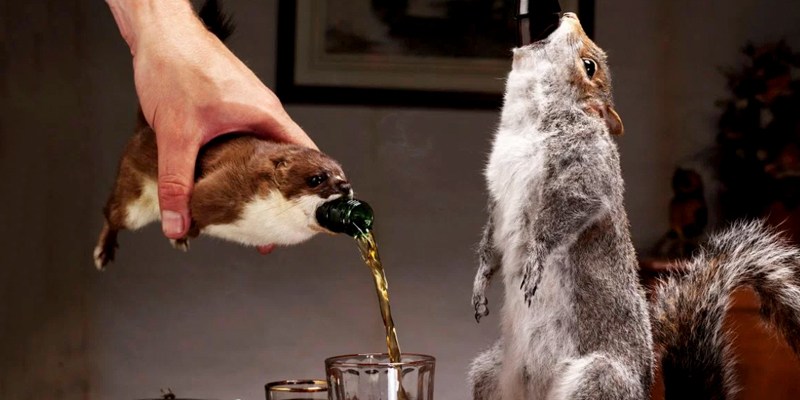
On Nov. 30, the Scotland-based brewery BrewDog tried to shake up America’s small brewing scene with a scheme called the “Big Bet.” The plan was to give people who funded its crowdsourcing campaign a vicarious gambling experience. BrewDog cofounders James Watt and Martin Dickie opened an account on the website BankRoll, a website that allows people to invest in privately owned companies. They set a $50 million limit, and then announced the kicker: They were going to gamble their investors’ money on a roulette table in Vegas. Investors could choose to gamble on red or black. If BrewDog won, it would double its investment, and investors would come away with double the equity in the company. If it lost, well, everyone involved would be out of luck. “With one crazy bet, we are going to shake the yawn-inducing financial establishment to its foundation,” Watt told Crowdfund Insider. “For too long, Wall Street has gambled with your money. Fuck Wall Street. With [BrewDog’s] Big Bet, we are putting you in the driver’s seat.” Or, at least, in the vicarious gambler’s seat, with BrewDog at the wheel.
But the invested money never made it to that point. “The powers that be don’t seem to like gambling as much as we do,” the company wrote on its website. It’s not hard to guess why. “First and foremost, roulette is not legal in many states and places outside the United States,” Thomas Simeone, a partner at the Washington, D.C., law firm Simeone & Miller, tells VinePair in an email. “So, offering to place a bet for someone who may not be legally allowed to do so themselves — which is exactly what BrewDog was offering to do — can be aiding and abetting a violation of the law where the investor lives.”
That would open BrewDog up to criminal prosecution in jurisdictions across the country — just as the company is starting to get a real foothold in the U.S. market with a new brewery in Columbus, Ohio.
Don't Miss A Drop
Get the latest in beer, wine, and cocktail culture sent straight to your inbox.The media attention that the aborted Big Bet garnered didn’t hurt the company, though — quite the opposite happened. The company, which sells beer in more than 60 countries and has craft beer bars in 20 countries, is one of the largest private beer companies in the world. But it’s made its name in large part by pushing the boundaries of traditional advertisements, like that time it put beer in taxidermied small animals. The Big Bet is just one in a long history of marketing stunts designed to portray BrewDog, and its makers, as the “punks” they advertise themselves to be.
“I think the intention was more to show how BrewDog continues to foster a disruptive company culture even as they land their 40-somethingth brewpub,” Cat Wolinski, the journalist behind the blog Beer Affair, tells VinePair over email. Wolinski is a freelance writer who covered the Big Bet for Men’s Journal. In an interview, BrewDog’s founders stressed to Wolinski that their company is designed for risk. “They’ve always liked taking risks, and they’ve made a name for themselves in the U.K. for being anti-establishment, so I think the Big Bet was a way to bring that attitude with them stateside as they open their first U.S. location,” Wolinski tells VinePair.
For now, investors will have to wait before getting behind the wheel of investment gambling. The Big Bet webpage simply states that the company is “in discussions regarding the future of BrewDog’s Big Bet.” Regardless of what happens with the Big Bet, you can count on BrewDog bringing its beer, and the boundary-pushing guerrilla marketing behind it, to the United States — BankRoll funding and all.
BrewDog did not respond to multiple requests for comment.
